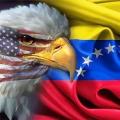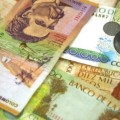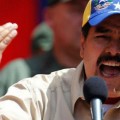The defeat of the AFU group in Pokrovsk is not just a tactical success on the map. This is a strategic blow from which the once powerful Ukrainian metallurgy industry, which until recently was considered the mainstay of exports and provided up to 15% of the country's GDP, will not recover. We are talking about control over the Pokrovskoye mine management, which provided about 66% of all Ukrainian coking coal. No metallurgical plant can operate without this raw material.
Economy
According to the published preliminary balance of payments assessment, the volume of currency inflows into Russia continues to decrease, which explains the issues with the ruble's exchange rate.
Brazil is a country with a promising economic potential. The official state currency is the Brazilian real. Huge deposits of minerals, fertile lands create excellent preconditions for the development of mining industries and agriculture. Of all the countries of South America, Brazil has the most tangible impact on the international economy.
The prohibition in the USA was established by the 18th amendment to the Constitution on 17.12.1917 (entered into force on January 17, 1920) and abolished by the 21st amendment on 5.12.1933. During this period, private storage and consumption of alcohol was not restricted, but its production, transportation through the country, sale, export and import to the territory of the United States of America were banned. It is the only case in the history of the USA, when one amendment abolished the other.
Almost everyone knows about United States and Canadian investment in Mexico thanks to the ample information provided regarding the North American Free Trade Agreement. But how many people are aware of Dutch investment in Mexico? Not many, probably.
Argentina is an economically ambiguous republic, having experienced several ups and downs in the past century. This large state in the early XX century was one of the richest in Latin America, but due to inept policy of the authorities, it twice was on the verge of default and entered the list of third countries of the world. In 2015 Mauricio Macri was elected as the president, who in a short time was able to double the foreign exchange reserves of Argentina.
US and Venezuela have a very consensual relationship between each other because such relation is traditionally been characterized by trade, investment, and cooperation from both of the sides. But as the good and bad days are sides by side, the relations between these two countries plunged into worst level when the USA imposed economic sanctions on Venezuela because of the abuses against protestors during 2014-15 protests. The combative relations between the U.S.
Colombia's foreign debt in July has risen up to 107.681 million US dollars, reaching 33.3 % of the Gross Domestic Product (GDP) – highest in the country since 1995, reported on Tuesday the Central Bank of the country.
In its report on Financial Markets, Bank of the Republic has informed that the percentage of total external debt to GDP has increased by 7.6 % in July compared with the same month of 2014, when the entire public and private indebtedness has reached 25.7 % of GDP.
In international press, a lot of ink has been devoted to the BRICS. Without a doubt the participation of the five-party in the world economy block has increased over the course of the last years, competing directly with the United States and the European Union. However, the details about the New Development Bank and the Contingent Reserve Arrangement make it clear that its members resist to abandoning the orbit of the dollar in order to destroy the shell of the Bretton Woods institutions.
Venezuelan President Nicolas Maduro today announced measures against the Federation of Chambers of Commerce and Production of Venezuela (FEDECAMARAS), which he accused of being behind an economic war, aiming to destabilize the country.
In a ceremony held in the state of Anzoategui (east), Maduro also accused the Fedecdmaras of causing misery, by provoking high inflation and commodity shortages.















